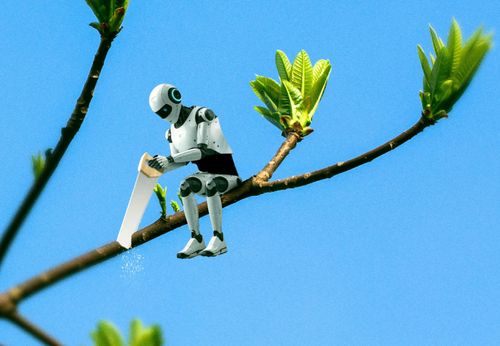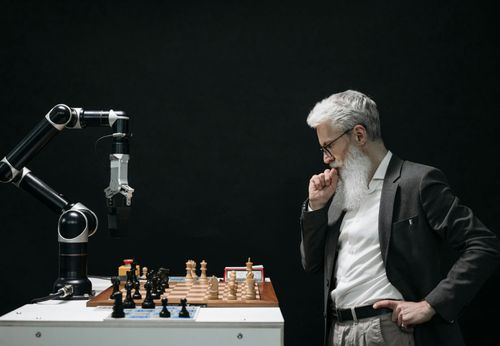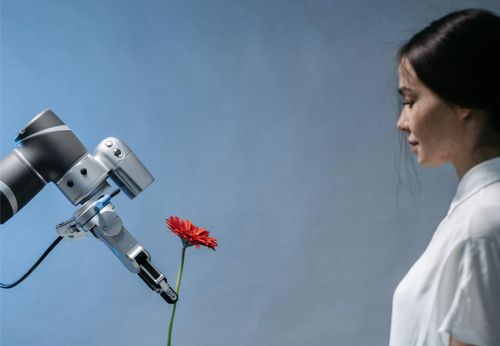How Blockchain + AI Will Revolutionize Longevity—and Put Your Health Data Back in Your Hands
Let’s start with the fear: You’ve lived a life, tracked your steps, logged your meals, taken your meds, uploaded your labs—and now your data is working against you.
Your insurance rates rise. Your coverage is questioned. Your personal history—deeply human and deeply contextual—is treated like a pricing algorithm.
You’re not alone. A recent survey by the American Medical Association found that 75% of patients are concerned about their health data being sold or misused. And they’re right to worry: medical data breaches have doubled in the last 5 years [source: HIPAA Journal, 2024].
But here’s the deeper problem: We live in the most data-rich moment in human history—and most of us don’t own a byte of it
As AI-powered medicine, bio-trackers, and personalized health diagnostics race forward, we’re entering what scientists call the era of bio-exponentiality.
We can track biological age in real time. Predict disease before it manifests. Tailor therapies to your DNA.
And yet… we’re flying blind. Because the fuel of this future—data—is siloed, sold, or lost in institutional black boxes.
This is where Longevity Intelligence™ (LI) enters the story.
LI isn’t just about living longer—it’s about living wisely in a world of rapid technological change.
And that means reclaiming the right to your story—your biology, your behavior, your becoming.
Enter Blockchain: The Guardian of Trust
Think of blockchain not as crypto hype, but as a ledger of trust. It gives you:
• Control – You decide who accesses your data, when, and for how long.
• Transparency – Every interaction is logged, traceable, and consent-based.
• Immutability – Your health history can’t be altered or lost—only added to, by you or those you authorize.
Imagine a system where:
• Your healthspan data is stored in a self-sovereign vault.
• You can grant a clinic temporary access to your biomarkers via a smart contract.
• You earn tokens for sharing anonymized data in a longevity trial.
• Your AI co-pilot learns from your full history—not just isolated snapshots.
This is no longer science fiction.
It’s already happening through platforms like Patientory, Embleema, and Genomes.io, where people are managing their genetic and medical data with decentralized control.
Why AI Needs Blockchain
AI is only as good as the data it’s trained on. But without trusted systems, we get bias, opacity, and unequal access.
Blockchain fixes the trust gap:
• Verifies data provenance (Was this real? Was this you?)
• Enables federated learning (AI can learn from your data without seeing your data)
• Creates incentive layers (You control how and why your data trains models)
Together, AI + Blockchain + LI is the new trinity of patient empowerment. AI gives us insight. Blockchain gives us agency.
Longevity Intelligence gives us the wisdom to use both well.
From Passive Patient to Intelligent Co-Pilot
With this shift, we don’t just redesign healthcare—we redefine the human role inside it. You’re no longer a subject of testing, treatment, and insurance underwriting. You become a node in a dynamic, self-evolving network of well-being. Your health data becomes:
• A tool for personalized longevity strategies
• A contribution to collective knowledge
• A feedback loop to support intentional living
And when you combine this with the Longevity Intelligence Framework—lifelong learning, plasticity, systems thinking—you’re not just extending your life. You’re upgrading your operating system.
A Few Numbers to Make It Real
• 328 million people were affected by healthcare data breaches in the U.S. between 2009–2023 [source: HHS OCR]
• 93% of consumers would switch providers for better data privacy [source: Accenture Digital Health Survey]
• Blockchain in healthcare is projected to reach $12.5 billion by 2030, growing at 37% CAGR [source: BIS Research]
• AI-driven diagnostics improve accuracy by up to 40% when integrated with comprehensive longitudinal data sets. [source: Stanford Medicine, 2023]
Final Takeaway
The future of longevity isn’t just personalized—it’s participatory.
• Your data. Your consent. Your intelligence—amplified by tools you can trust.
• We don’t need more passive patients.
• We need intelligent navigators of long lives.
Blockchain is the vault. AI is the navigator. Longevity Intelligence is the compass.
And the future? That’s yours to co-author.



